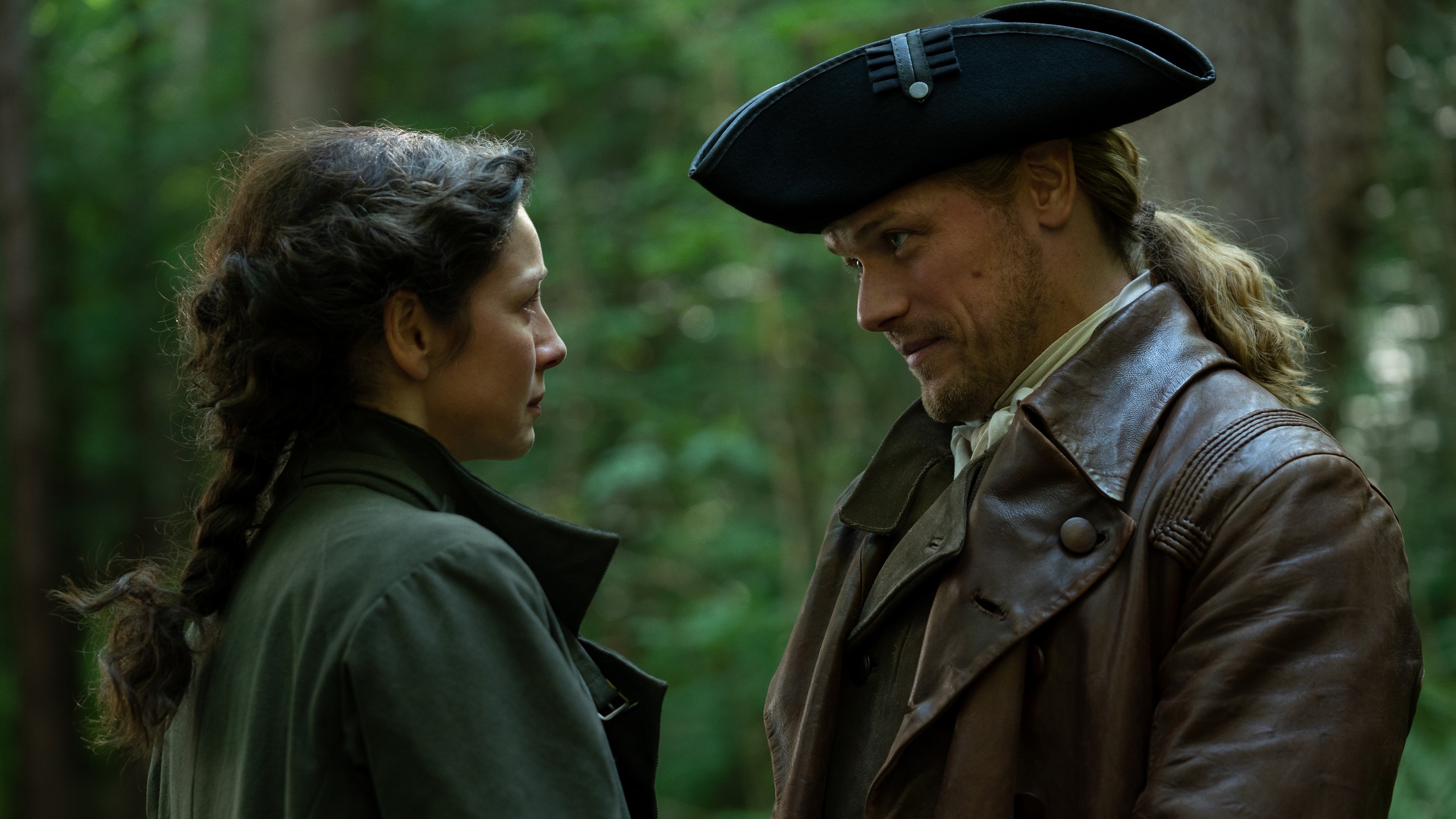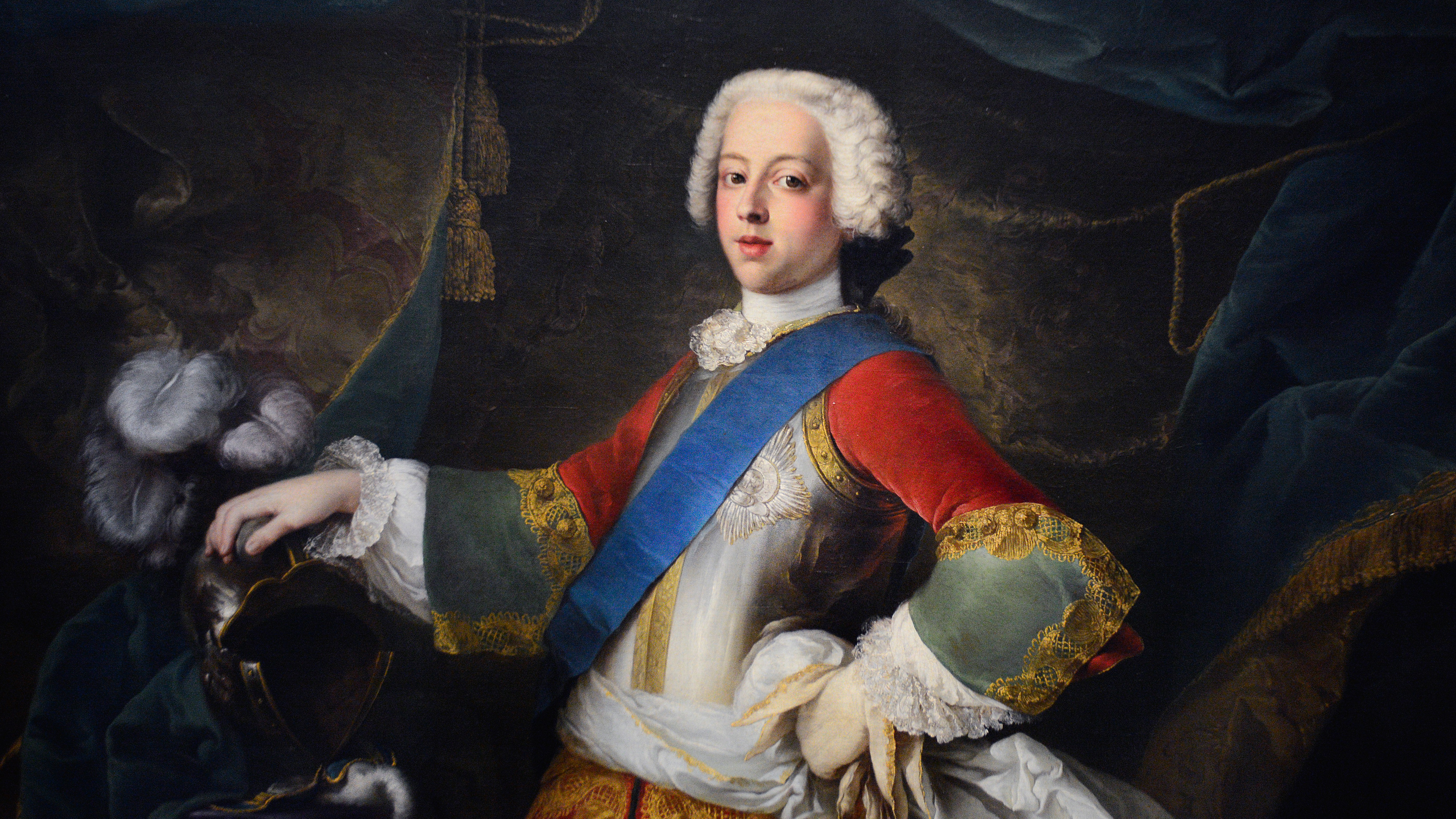
While Outlander mixes time travel with historical fiction, the show has always made clever use of Scottish and American history to elevate its narrative. Now into its seventh season, the Starz series is also going back to some of its older storylines to add new layers to its plot.
The third episode of Outlander season 7 piggybacks on something that was featured in the second season of the series: the lost gold that was sent by the French to assist the Jacobite rebellion. In "Death Be Not Proud", Jamie (Sam Heughan) confronts Arch Bug (Hugh Ross) about a gold bar that was found in the Bugs’ possessions and that appears to be part of that lost treasure.
What happened with the Jacobite gold in Outlander?
When Jamie looked at the gold bar that was in the Bugs’ belongings, he noticed something: the gold was marked by a fleur-de-lys, a French symbol that indicated this gold was the missing French gold that was sent to the aid Bonnie Prince Charlie during the Jacobite rebellion in Scotland in the 1740s. Baffled by the discovery, Jamie asks how it ended up in the hands of the Bugs and in America.
Here’s what happened to the French gold: three men were present when the gold arrived in Scotland from France. Arch Bug was one of them as a tax man to Michael Grant, along with Dougal Mackenzie and Hector Cameron. However, since the money came too late to make a difference for the Jacobite cause, they decided to divide the gold. But while Arch took his third for Grant to use for the good of his clan, Hector fled Scotland with his share. Cameron used some of the gold to build the plantation at River Run and later on, when Bug went there, he started looking for the rest of it. Bug came to realize that Cameron had buried himself with it, so with each visit to River Run, piece by piece, he took back what Cameron had stolen “from Scotland.”
In the episode “Death Be Not Proud,” Jaime finds out the gold is at Fraser’s Ridge, and was buried under his house. Knowing it is too dangerous to keep around, he decides to melt half of it, turning it into bullets, and to hide the rest in a secret cave he once found while hunting with his grandson. He then sends a letter to his daughter explaining what he discovered and where the lost Jacobite gold can be found.
Who was Bonnie Prince Charlie and what was the gold for?

Charles Edward Stuart, also known as Bonnie Prince Charlie and the Young Pretender, was the elder son of James Francis Edward Stuart. He led the Jacobite rising of 1745 in an attempt to restore the Stuart monarchy to the thrones of England, Scotland and Ireland.
During the rising, the Jacobite forces led by the Bonnie Prince scored several victories in the field, including the Battle of Prestonpans, which is also featured on Outlander season 2. However, war costs money and the Stuart cause relied heavily on France, Spain and other catholic states for support. Before the battle of Culloden in April 1746, Charles was expecting a shipment of gold from the French that would help finance his rebellion.
What really happened to the so-called French gold?
More than a million livres, a combined payment from both France and Spain, arrived on two French frigates, the Bellona and Mars, two weeks after the crushing defeat at Culloden. Unaware that the rebellion had been extinguished, the ships decided to set sail in the middle of unloading the money when they realized they might get attacked by the British army. Only seven caskets of Spanish money were in fact delivered to the shores of Scotland.
As the Jacobite cause was now lost and Bonnie Prince Charlie went into hiding, the money was to be used for the benefit of remaining Jacobite clansmen and to help Jacobite leaders flee to the continent. One casket, however, was stolen by McDonald of Barrisdale's men. The remaining six were brought to Loch Arkaig, near Fort William, and hidden. Their location was a secret first kept by Murray of Broughton, who then started distributing the gold amongst clan chiefs before being arrested by the British Redcoats. The Jacobite gold was consequently entrusted to Donald Cameron of Lochiel, chief of Clan Cameron before going to Ewen MacPherson of Cluny, head of Clan Macpherson, who spent some of it to try to finance other uprising attempts.
Was the lost Jacobite gold ever found?
Ultimately, after fleeing Scotland and returning to France, Charles Stuart tried to get the gold back. According to experts, he enlisted the help of Charles Shelby, a English Catholic sympathetic to the Jacobite cause, to retrieve what was left of the gold. Eventually, a decent chunk of it was shipped back to London where it was then converted to paper money and returned to the Bonnie Prince in France. The rest of it had already been spent so in the end, not all of the Jacobite gold was lost, only some of it.
Many treasure hunters have since tried to find the gold that the clans hid from the British, because when Cluny was responsible for it, he could not account for all of it. Perhaps then there actually is still a stash of gold hidden somewhere within the Scottish Highlands, but it is the stuff of legends.
Is Outlander based on real events?
The gold seen in Outlander is therefore far removed from the real deal. For one, the caskets may have been delivered by the French but they contained both French and Spanish gold coins, not fleur-de-lys marked gold bars. Also, the real lost gold arrived after Culloden, while based on Arch story, the gold in his possession arrived before the battle (since he said Dougal Mackenzie was there and that character died before Culloden).
In the end, Outlander does use many real events and historical figures in its story, but it heavily fictionalizes its depiction of what actually went on in Scotland and America in the 1700s.
How to watch Outlander season 7
All sixth seasons of Outlander and its currently airing seventh season are available to watch on Starz in the US and Lionsgate Plus in the UK.







